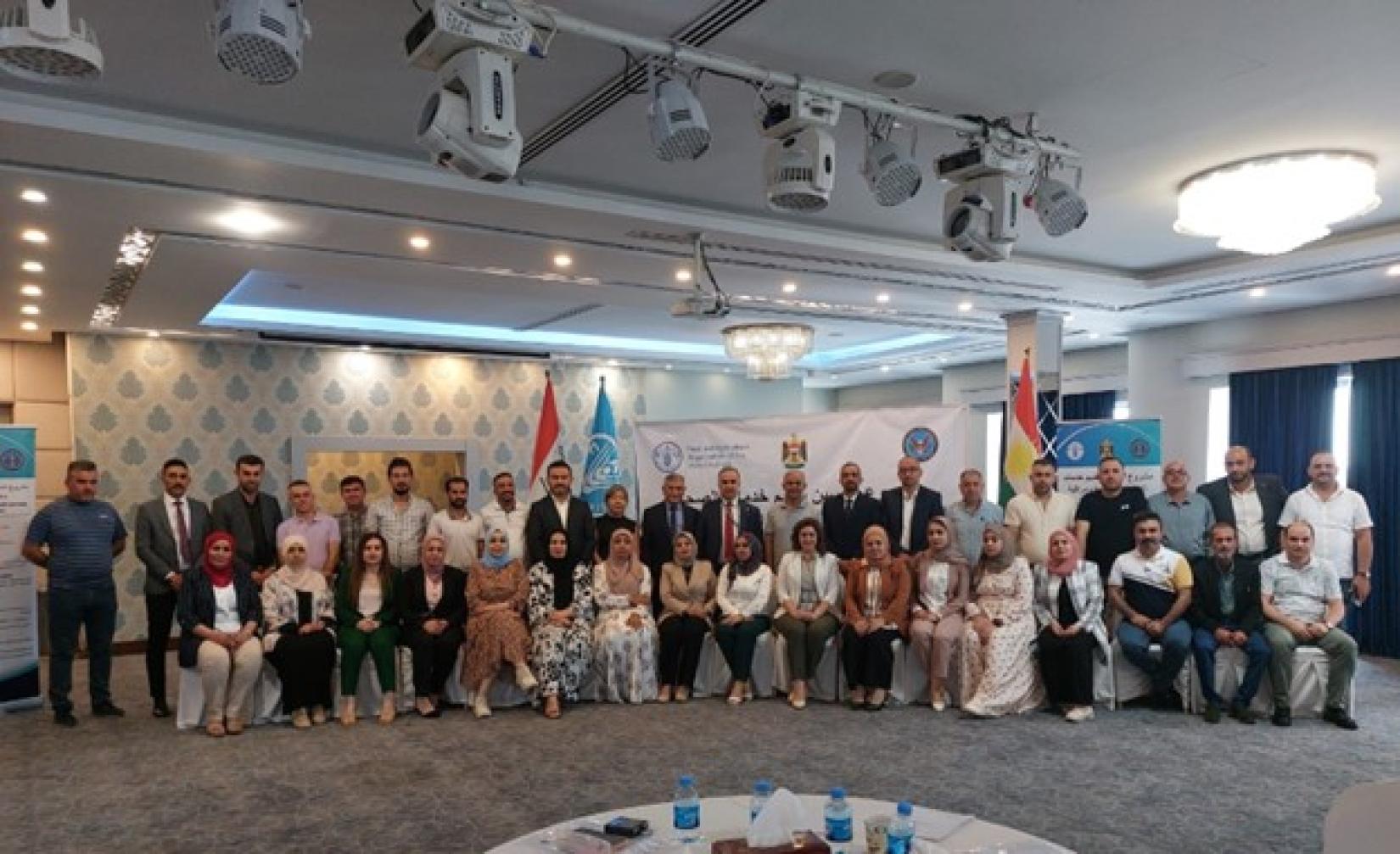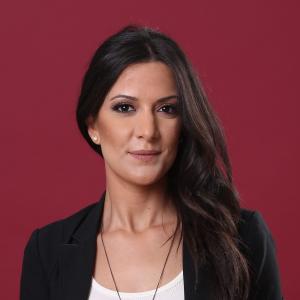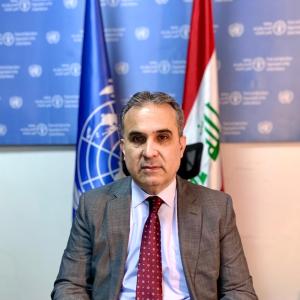FAO Training on proper personal protective equipment (PPE) use and biosecurity in field activities
25 May 2023

24 May 2023 - The Food and Agriculture Organization of the United Nations (FAO), in coordination with the Ministry of Agriculture (MoA) and Ministry of Agriculture and Water Resources (MoAWR)-KRG, conducted a workshop, from 21 – 24 May, on proper personal protective equipment (PPE) use and biosecurity in field activities as part of the project activities entitled “Improving Delivery of Animal Health Services and Disease Surveillance in Iraq” funded by the United States Defence Threat Reduction Agency (DTRA).
The workshop aimed to increase the veterinarian field capacities and promote how they can use personal protective equipment (PPE) properly in the field. It also aimed to train technical field staff on how to protect themselves from exposure to pathogenic agents and to manage the field-based biosecurity and biosafety standards.
Thirty-Eight specialists from the veterinary services in Baghdad, Erbil, Duhok, Nineveh, Anbar, Wasit, Muthanna and Basra, including four from each federal and KRG Ministry of Health participated in the training. The session was attended by the FAO-Representative in Iraq and officials from relevant ministries.
FAO Representative, Dr. Salah El Hajj Hassan, concentrated on the importance of these workshops for field veterinarians, especially since many lethal emerging and re-emerging zoonotic diseases are reported within the country and in the whole region such as Crimean-Congo Haemorrhagic Fever (CCHF); therefore, it requires a dedicated and sustained effort including specific technical and professional training.
Proficiency using PPE in the field is one of the important elements that contribute to biosafety and biosecurity, which provide physical barriers that prevent the hands, skin, clothing, eyes, nose, and mouth from coming into contact with infectious agents and avoiding contamination of samples during collection. This will contribute to avoiding the spread of disease in animal and human population.
The four-day training also included a field visit and practice to apply the training materials presented during the workshop.


He started his career in 1984, as Senior Research Assistant in the Agricultural Research and Education Centre (AREC), American University of Beirut. From 1987 to 1991, he was Coordinator of the Student Training Programme, and also Agriculture and Horticultural Teacher for the Faculty of Agriculture, at the Lebanese University.
From 1991 to 1995, he worked as Agricultural Engineer at the Ministry of Agriculture, Bekaa Regional Office, Zahlah and was then assigned to the Agricultural Research Institute in the Tal Amara station, first as Head of the Crop Production Department and subsequently in charge of the Plant Protection Laboratory. From 2002 to 2006, he was Director of the Kfardane Research Station (Agricultural Research Institute). In 2008, he became Visiting Scientist at the International Maize and Wheat Improvement Centre (CIMMYT) and Coordinator of a project with the International Centre for Atomic Energy Agency, Vienna.
In 2010, he served as Advisor to the Minister for Agriculture of Lebanon. In 2011, he became President of the Pesticide Scientific Committee, Head of the Phytoplasma Committee and Director of the Agriculture and Rural Development Programme (ARDP) (EU-funded project). From 2010 to 2013, he represented Lebanon in negotiations with EU, Egypt, Jordan and Iraq. During his career, Mr Hajj Hassan also carried out a number of other functions. He represented the Lebanese Agricultural Research Institute (LARI) in several research programmes with the International Centre for Agricultural Research in the Dry Areas (ICARDA) and the American University of Beirut. He was Coordinator of the Mashreq/Maghreb project with ICARDA, representing Lebanon in the Steering Committee, as well as being the Head of the Sugar-beet Delivery and of the Wheat Delivery Committees. For a number of years, Mr Hajj Hassan worked for the preparation of FAO TCP projects and served as the National Director of a TCP project. He joined FAO in January 2014 as FAO Representative in Yemen. Mr Hajj Hassan succeeds Mr El Zubi as FAO Representative in Iraq.



